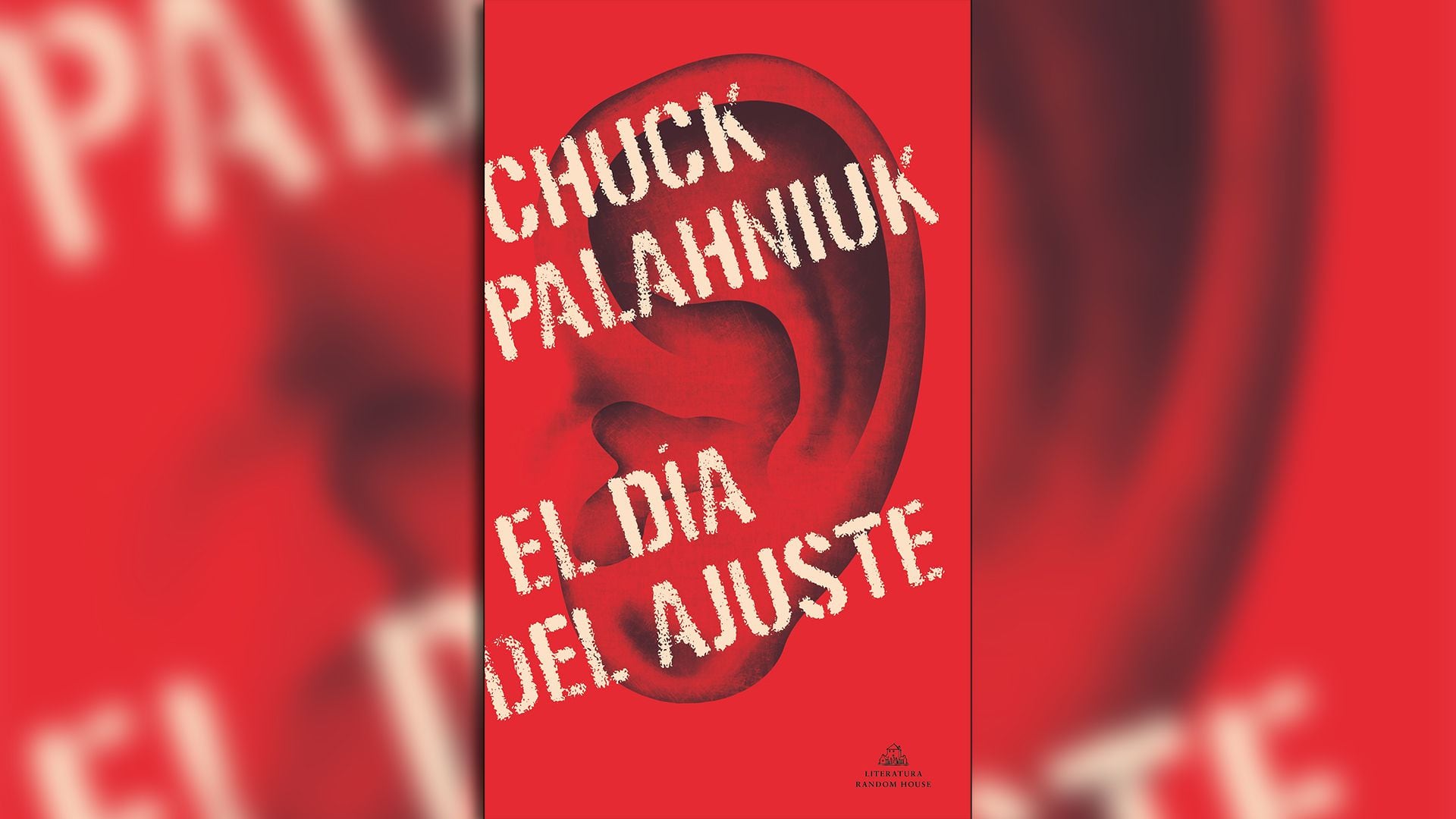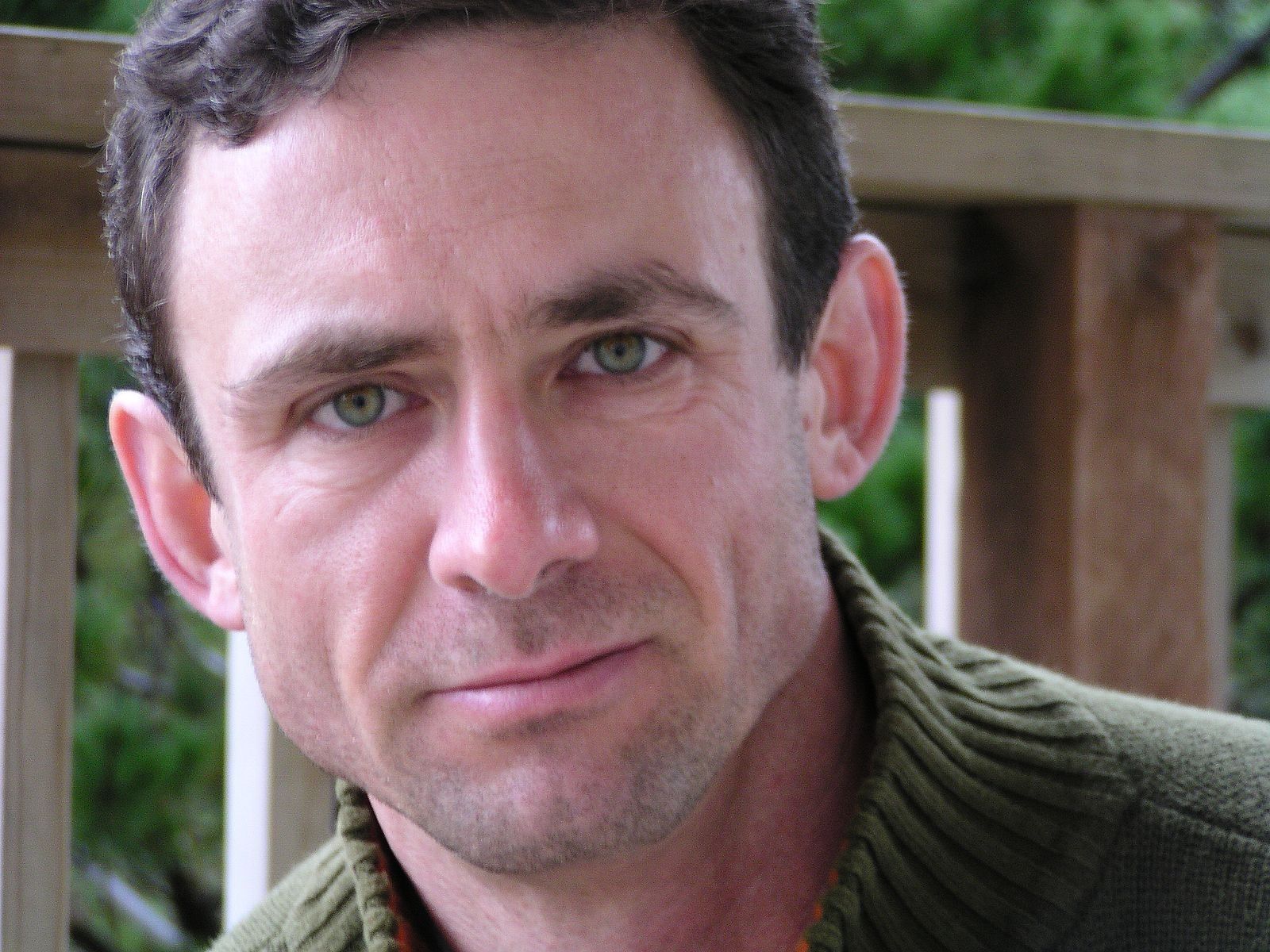
His real name is Charles Michael, but he probably wouldn't turn his head if he was called that on the street. He does respond to the adjectives that define his literature: romantic, nihilistic, transgressive, provocative, radical, adventurous, savage... It is Chuck Palahniuk, one of the most disruptive writers in American literature, author of a work that is already part of history, The Fight Club (1996), and also another published in the United States in 2018 and which consecrated it as a social visionary, The Day of Adjustment.
“They closed their eyes to better imagine the high windows of the Capitol or the courts shattered,” he says in his latest book, as predicting the capture of the Capitol on January 6, 2021 by supporters of former President Donald Trump. This corrosive satire of American society shows the current social upheaval, criticizes toxic masculinity and portrays all kinds of easily recognizable characters from the modern world.
The writer participated in the 2021 TELOS Forum Remembering the Future, a title that seemed to be designed for a man who has a very thin ear to detect changes and social struggles before they appear: “I studied journalism at university, so I don't invent many things within my literature. I usually write about ideas that I have heard from other people who see that the world is wrong and that is where my fiction comes from.”

He assures that literature does not exist to tell us what is right or what is wrong, but that it has the role of analyzing things in order to reach a consensus.
An author as transgressive as Chuck Palahniuk complains that nowadays it would be difficult for a new author to write a play like The Fight Club: “Since the attacks on the World Trade Center, books as transgressive as that have been badly condemned. Since terrorism is the way it is, we opt for more traditional genres such as horror and fantasy.”
A particular way of transmitting fiction
Palahniuk's words are a great learning experience for lovers of literature. He constantly gives clues about his way of transmitting fiction and on how to take the reader on paths that he would never have dared to walk. In fact, he thrives on the stories that others tell him and transfers to his group therapy situations that he has experienced to contemplate how other people would react to them:
“When Truman Capote went to sex clubs in New York, people recognized him and started behaving as if they were all porn stars, much more histrionic and acting in a more exaggerated way to get his attention. It is always said that the observer has an influence on what others are doing. I think that when people tell me their stories and talk about their experiences they are expressing themselves as they are and they don't try to act for me because what they want is for me to remember their idea, they want me to show them in my work. I think people know they can trust me to live up to their story and not turn it into something else.”
Building links
In the work of this American writer, the need of his characters to build bonds with others, to belong to something larger, to a certain group, is very important. However, the reader is always a lonely being in front of a book. This is how Palahniuk reflects:
“Yes, I think there is a lot of loneliness in the reader. Reading is a solitary activity, so a writer should write thinking about people who are alone in order to connect that reader with a collective that they can feel part of. However, inspiration is a more social act that begins with isolation, but which I then take to my group therapy. I do it through an anecdote and take it out as a topic of conversation. At that moment I see that everyone begins to give their own version of that event in their lives and that is how I develop the idea, that is, I use the experiences of many people who have experienced the same disturbing and unresolved event, but have not been able to talk about it. I collect all the versions and all the views I can about this experience.”
The author speaks of democracy and the lack thereof that often leads to censorship. He himself was a journalist at the beginning and suffered it in his own jobs. It recognizes that democracy works very well in homogeneous populations that have the same purposes and that they are small, but when it is expanded to larger groups it believes that it no longer works as it should.
“My last two or three books have been censored and banned a lot. For some, that would be like putting on a medal, but on the contrary, I think that the fact that you are banned from a book nowadays what it generates is a difficulty for the author in every way.”
So is this new wave of political correctness a blessing or a curse for authors like Palahniuk?
“In a way I am in favour of the new changes of any wave. I believe that all generations have to change the rules of the game because they know that the game has been changed by the previous generation in order to win, so every new generation has to change it in order to win them. I also understand people who ask for a safe place and that there is no provocation. They belong to a generation that has been exposed to so much conflict in their lives that what they want is to ask for peace. John Lennon's generation, for example, asked for peace and peace is different for each generation. Right now peace is like a complete suppression of conflict, that is, the disappearance of traditional forms of power and that there is total control of the narrative, that is what peace is for many. When I was young, peace was the absence of war, of open war between different countries. People are really tired of seeing how they are provoked and exposed to unpleasant things and want to find peace in their lives.”
An intergenerational writer
When his first novels appeared, he was described as a generational writer. However, it has been proven that there is something in his literature that appeals to intergenerationality. Palahniuk stops at the younger generations:

“In the past we had more open spaces to be in if we didn't fit into society. They were spaces where you could live a more solitary life, realize yourself as a person and fulfill your abilities once isolated. But today we live so densely that we don't have those spaces to send these people. Now we have a virtual frontier where people who are different can gather. In this sense, I believe that all protests are not just a catharsis, but also a laboratory in which future leaders are going to be trained, they will distinguish themselves from others.”
The writer believes that writing a book can be something painful, but never at first: “The start has to be attractive and it has to engage and then the book has to become more complex and darker and it has to take the reader to increasingly difficult places until they reach a place they would never have wanted to go. The function of good literature is to invite us to go to a place we don't normally want to go.”
And he ends his speech with a tip for young writers: “I always go back to the reason why I started writing. At a certain point I couldn't find the book I wanted to read anymore, there were no books that hooked me from the first page, so instead of stopping reading I thought that the only responsible thing I could do was write the book I wanted to read. I would bet that there are many people of many ages who are very tired of what is there, of what comes to them through the media, and for them it is time to try to write the story they would like to see in the world.”
This chronicle was originally published in the TELOS Magazine of the Telefónica Foundation.
Posted in The Conversation
KEEP READING
Últimas Noticias
Debanhi Escobar: they secured the motel where she was found lifeless in a cistern
Members of the Specialized Prosecutor's Office in Nuevo León secured the Nueva Castilla Motel as part of the investigations into the case

The oldest person in the world died at the age of 119
Kane Tanaka lived in Japan. She was born six months earlier than George Orwell, the same year that the Wright brothers first flew, and Marie Curie became the first woman to win a Nobel Prize

Macabre find in CDMX: they left a body bagged and tied in a taxi
The body was left in the back seats of the car. It was covered with black bags and tied with industrial tape
The eagles of America will face Manchester City in a duel of legends. Here are the details
The top Mexican football champion will play a match with Pep Guardiola's squad in the Lone Star Cup

Why is it good to bring dogs out to know the world when they are puppies
A so-called protection against the spread of diseases threatens the integral development of dogs



